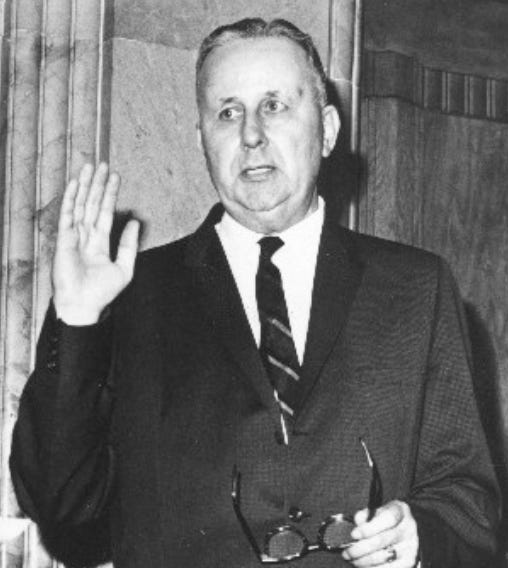I just read this brilliant opinion — technically a ruling about the gun rights of felons, but really a broadside against the abomination of judicial “originalism” — and only at the end noticed that it comes from the U.S. District Court for the Southern District of Mississippi. (Wait, wait, I promise I’m going somewhere with this.)
Given its location, that one particular District Court, as you might imagine, played a huge role in the civil rights drama of the 1960s.
Trust me, I’ve spent the last few weeks sorting through archival materials from major cases that made their way through that court: U.S. v. Theron Lynd, a pivotal case tackling racial discrimination by election officials; Meredith v. Fair, the landmark lawsuit that secured James Meredith’s entry into Ole Miss; and U.S. v. Price, the infamous “Mississippi Burning” murder case that I discussed previously here.
While some other southern federal judges, like Frank Johnson in neighboring Alabama, proved friendly to the federal government’s championing of the civil rights of African Americans, ones in the Southern District of Mississippi were decidedly not.
Judge William Harold Cox — who presided in Lynd, Price, and countless other civil rights cases in the crucible of the early 1960s — was a notorious segregationist. There were plenty of those across the South, of course, but Cox wasn’t some old relic who had been haunting the bench for decades. No, he’d been appointed in June 1961 by a young, liberal, northern president, John F. Kennedy, even as the civil rights revolution was already underway.
Why?
Well, the Kennedy administration inherited a host of new judicial vacancies, but faced a considerable obstacle to filling them. Mississippi Senator Jim Eastland, a prominent segregationist and ardent defender of white supremacy, served as the chairman of the Senate Judiciary Committee. Any and every judicial appointment had to go through him.
Like any good politician of the era, Eastland was willing to play ball, at the right price. The Kennedy administration wanted to place NAACP attorney Thurgood Marshall to a federal judgeship, and Eastland said he’d allow it on one condition — they would have to make Cox, his former college roommate from Ole Miss, a federal judge too. Cox solemnly swore that he’d give civil rights a fair shake in his courtroom, despite every sign suggesting otherwise. In a decision they’d repeatedly regret, the Kennedy team swallowed hard and agreed to the deal.
Just as the segregationist Senator Eastland expected, Judge Harold Cox proved to be a significant roadblock for all civil rights cases that came before him. In case after case, he threw delays and roadblocks in front of NAACP attorneys and lawyers from the Department of Justice, doing everything he could to prevent racial progress in the lower half of Mississippi. He often used racial slurs from the bench. In a 1964 case, Cox sneered that some black witnesses were acting like “a bunch of chimpanzees.”
The appointment of Harold Cox to the U.S. District Court for the Southern District of Mississippi served as a strong reminder that, while our institutions matter, the people we choose to run those institutions matter too. Almost on his own, Judge Cox set back by several years the cause of racial peace and progress in the deepest corner of the Deep South. Put simply, bad officials lead to bad effects.
But now, we have a reminder that this principle works the other way too. The author of the brilliant decision I just read this evening is Judge Carlton W. Reeves, an African American who was born in 1964, the same year Cox made that “chimpanzees” slur. He was placed on the federal bench there by President Obama in 2011 and has been issuing fairly progressive rulings from the same bench that his predecessor used to preserve white supremacy.
Remarkable changes can happen, in the unlikeliest places, in the span of a lifetime.




